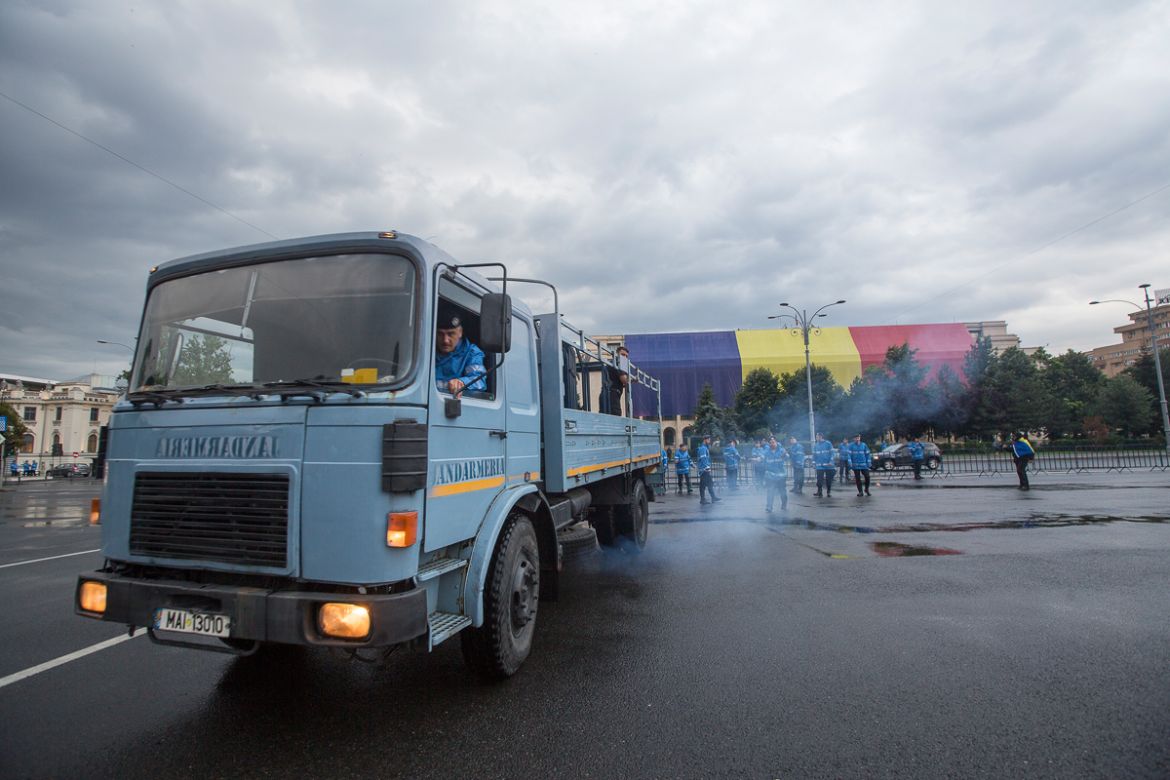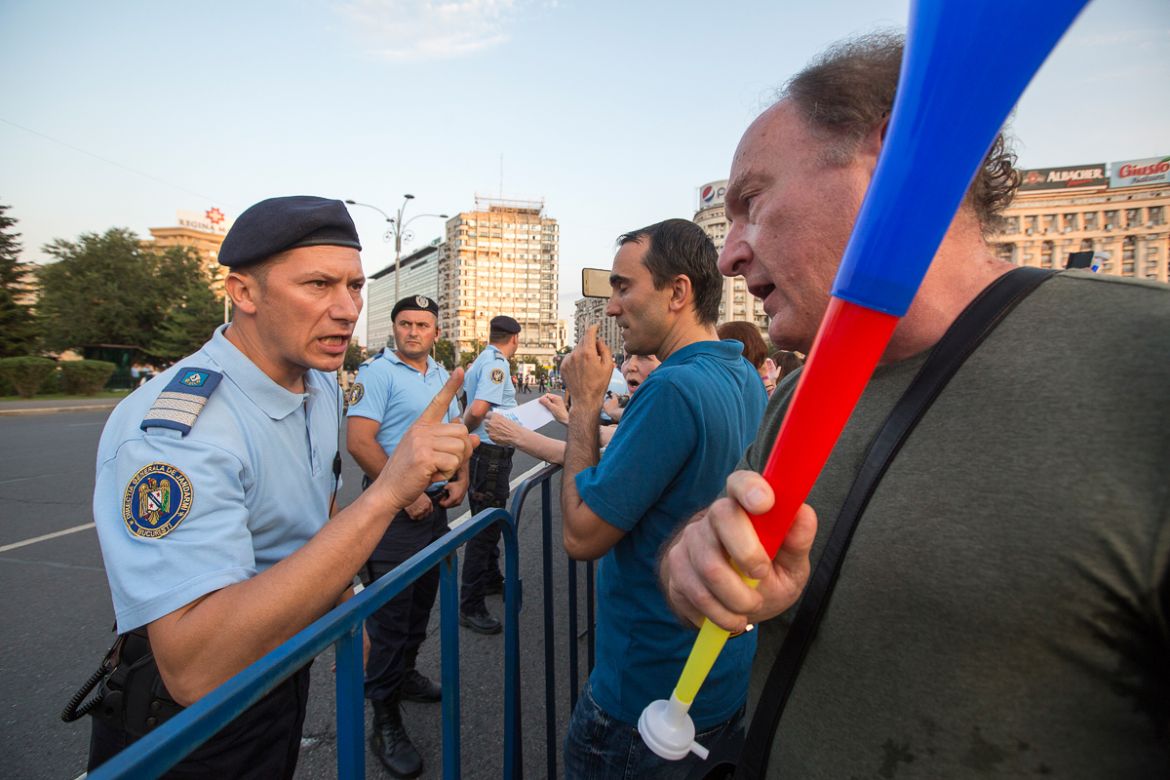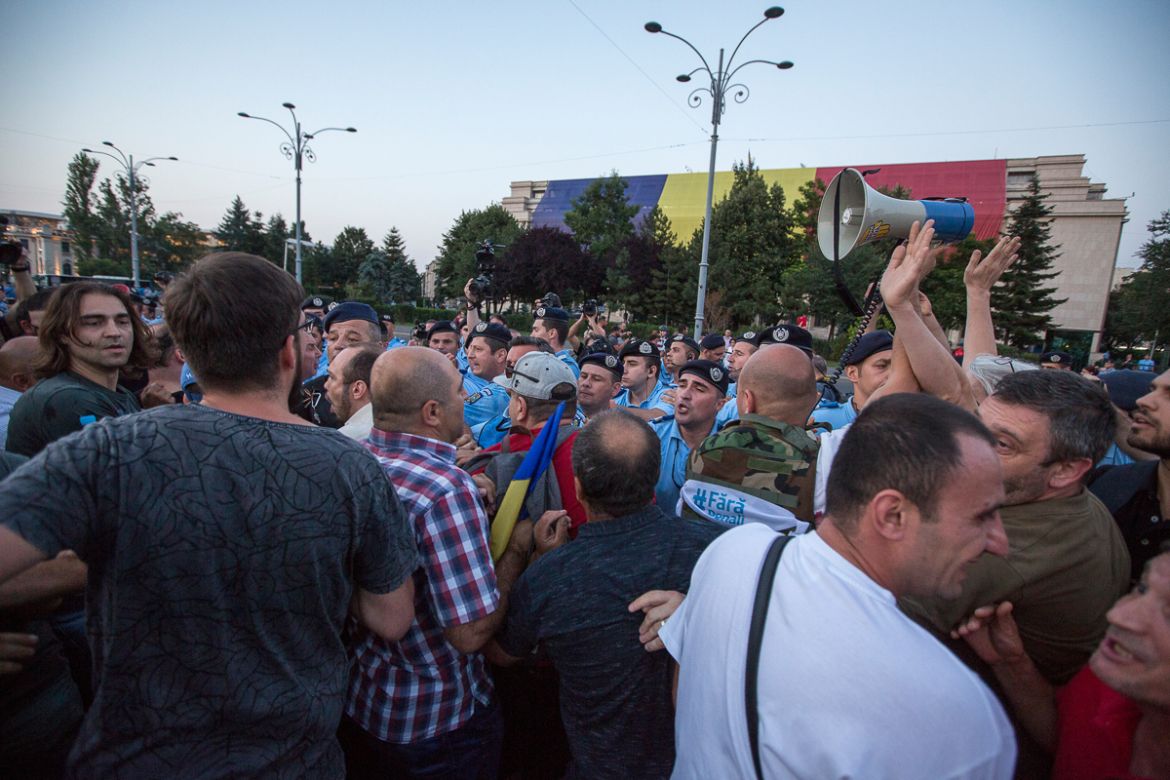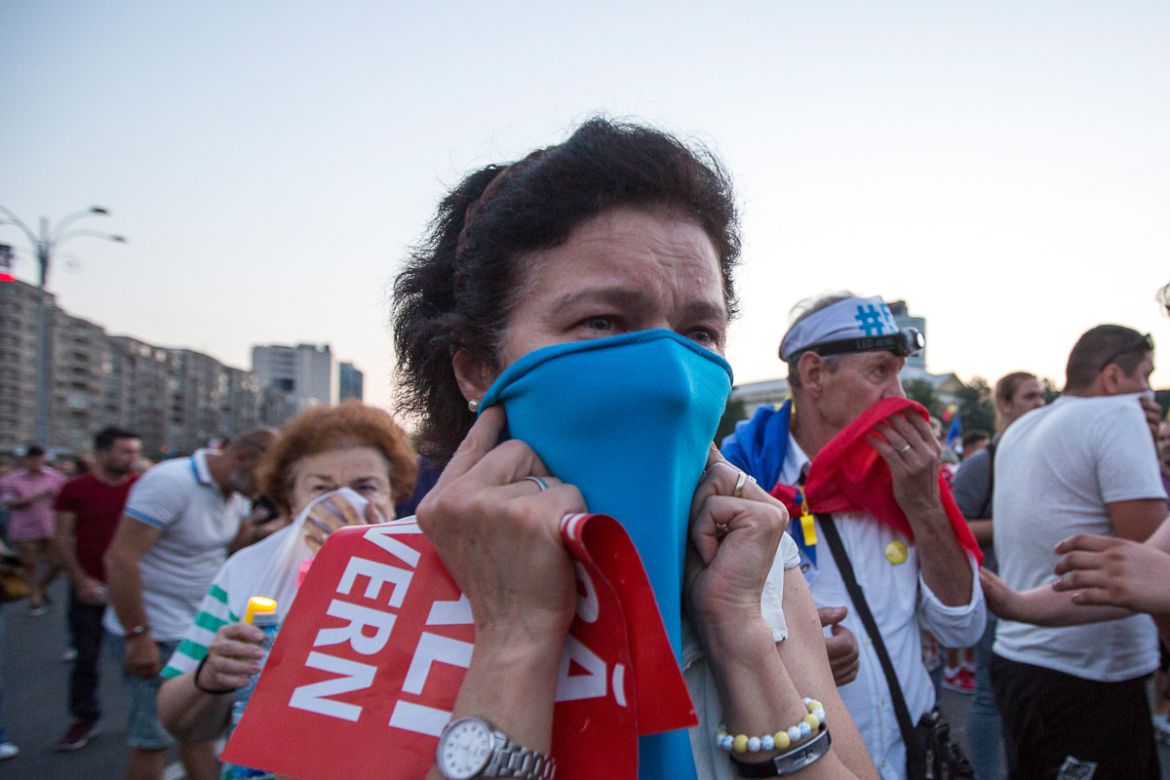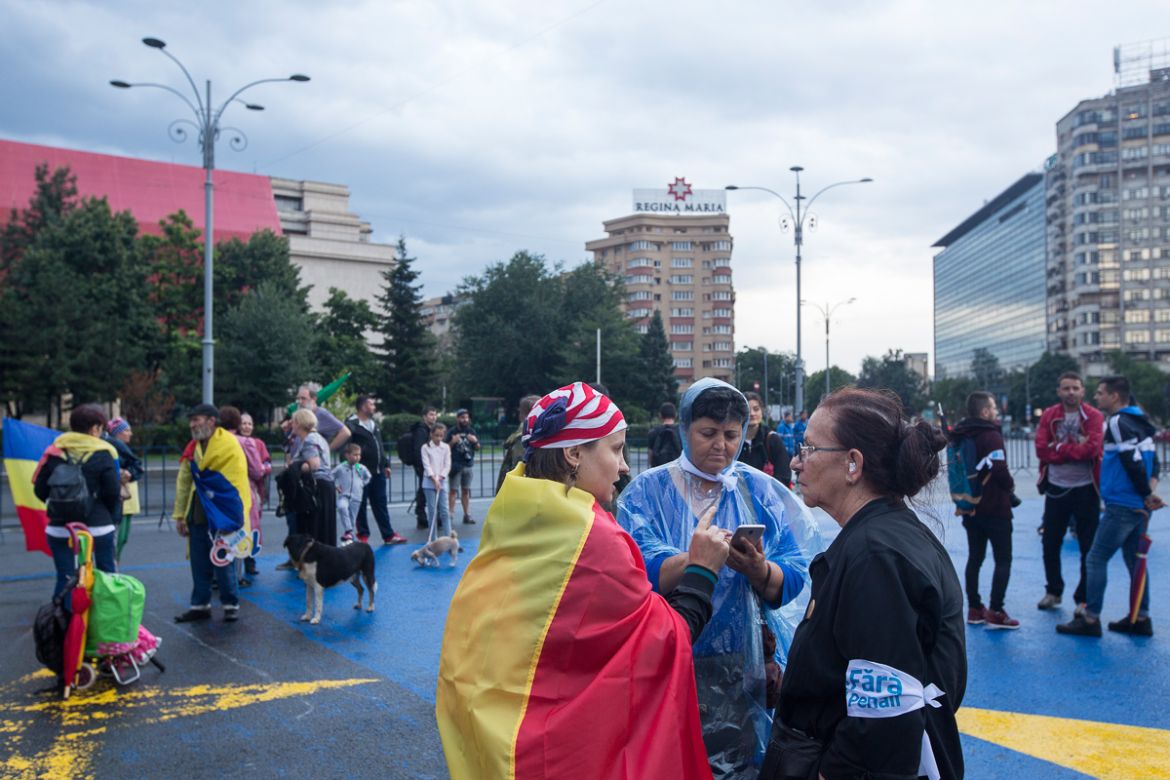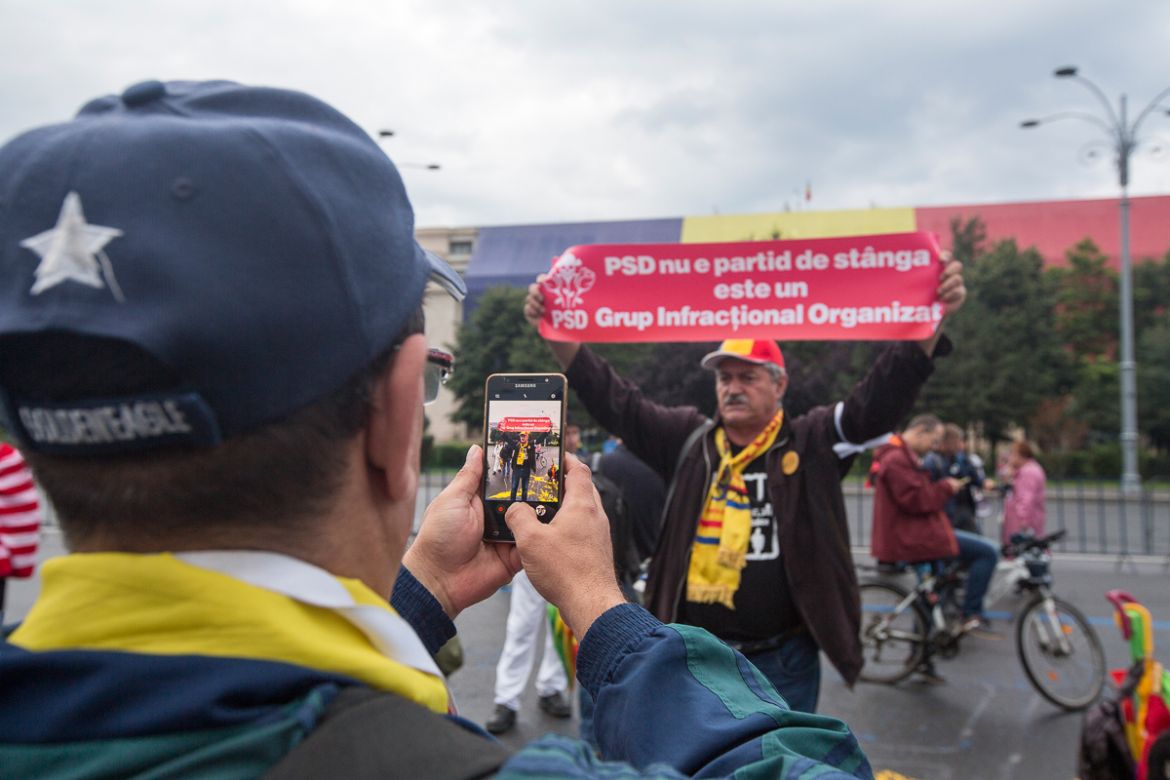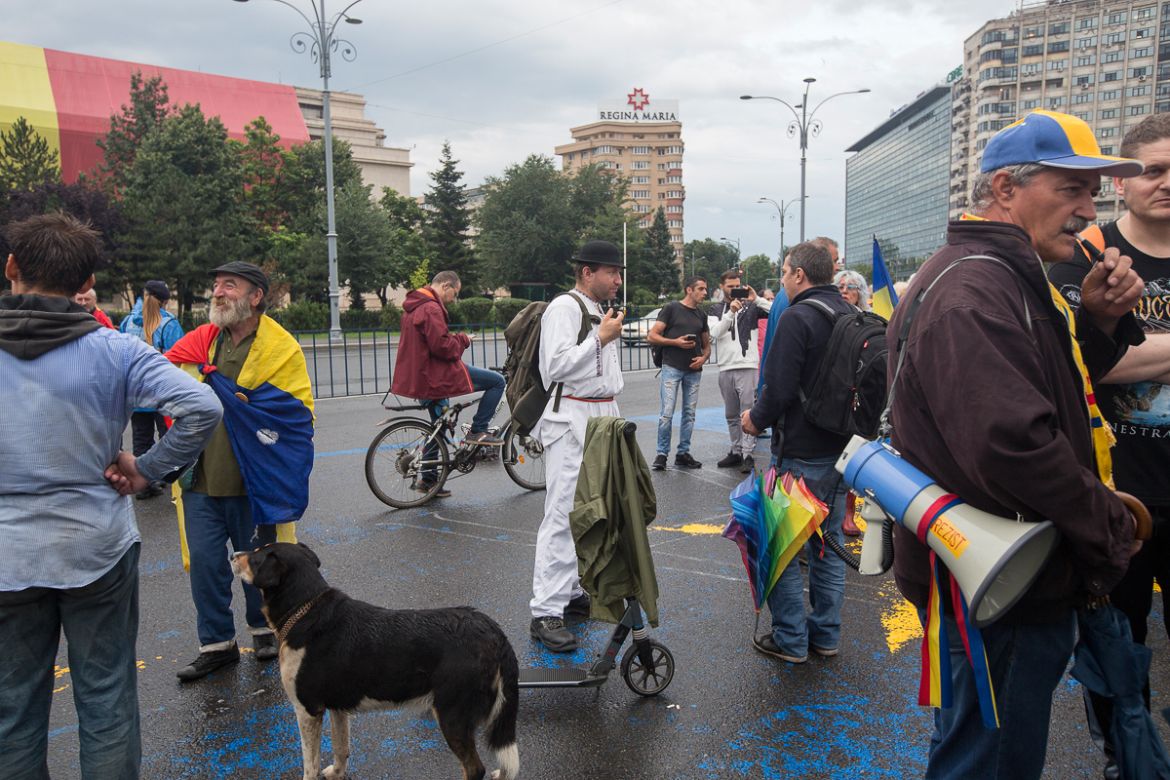In Pictures
Romania’s anti-corruption protests wither away
Romanians grow tired after one and a half years of protesting against corruption with no concrete results.
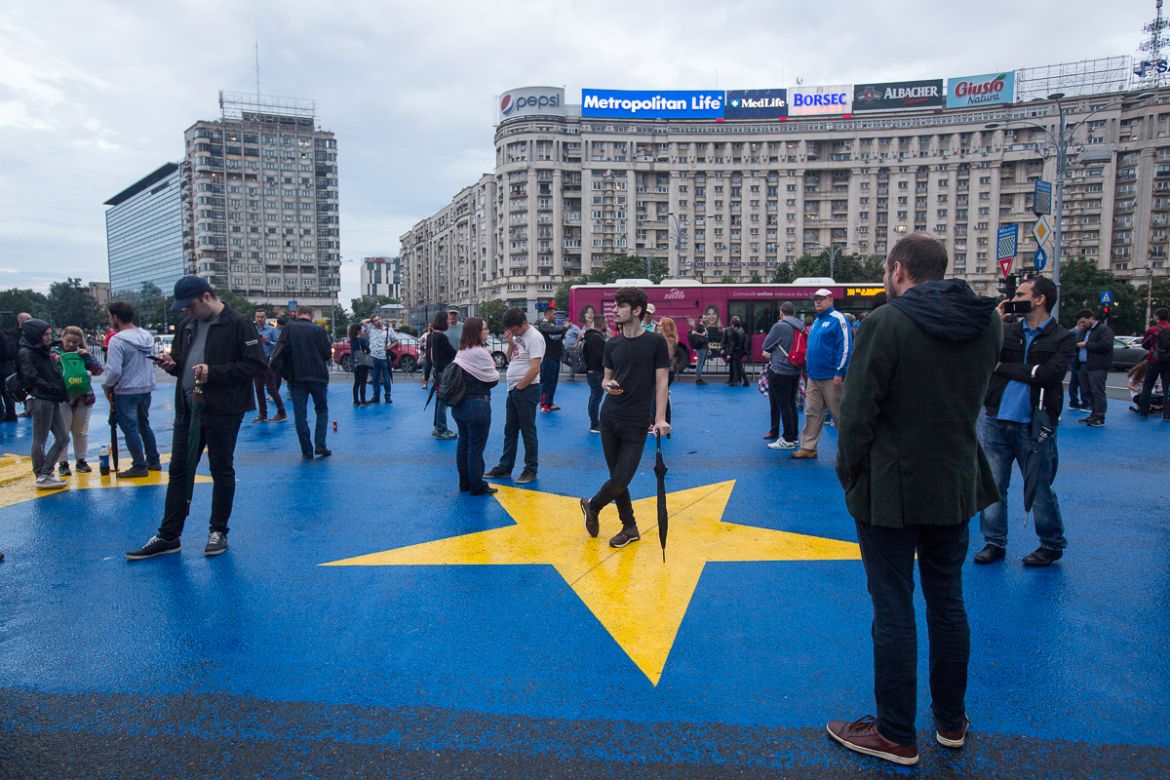
The last three weeks have seen the Romanian justice system being shaken by a series of events that displayed how politicised the implementation of the law in the EU nation has become.
On Monday, President Klaus Iohannis signed a decree to sack the head of the National Anticorruption Directorate (DNA), Laura Codruta Kovesi.
Kovesi was accused of “acting beyond her responsibilities” and not “respecting the authority of the parliament and damaging Romania’s image at an international level”.
The DNA, led by Kovesi, has been fighting corruption at high-level political positions since 2013. It has prosecuted hundreds of public figures, earning popular support and praise from the European Commission.
While many see her as a crusader against corruption, others, including politicians from the ruling party, have accused Kovesi’s actions as being politically motivated.
Kovesi’s dismissal came in the wake of another controversial incident on July 5, when the lower house of the parliament hastily approved changes to the criminal code that partially decriminalised abuse of office.
The latest developments can affect ongoing high-profile cases of corruption, including an abuse of office case against Liviu Dragnea, the leader of the ruling PSD and the speaker of the lower house. Dragnea was sentenced by the court to 3.5 years in prison on June 21, but the verdict is likely to be appealed.
The controversial decisions regarding the justice system in one of the most corrupt EU nation have led to frequent protests since January 2017, when the changes in the criminal code were first proposed in parliament.
Since then, the weakening of the anti-corruption fight has thrown the population into a general depression, with fewer people choosing to continue expressing their disagreement in the street.

